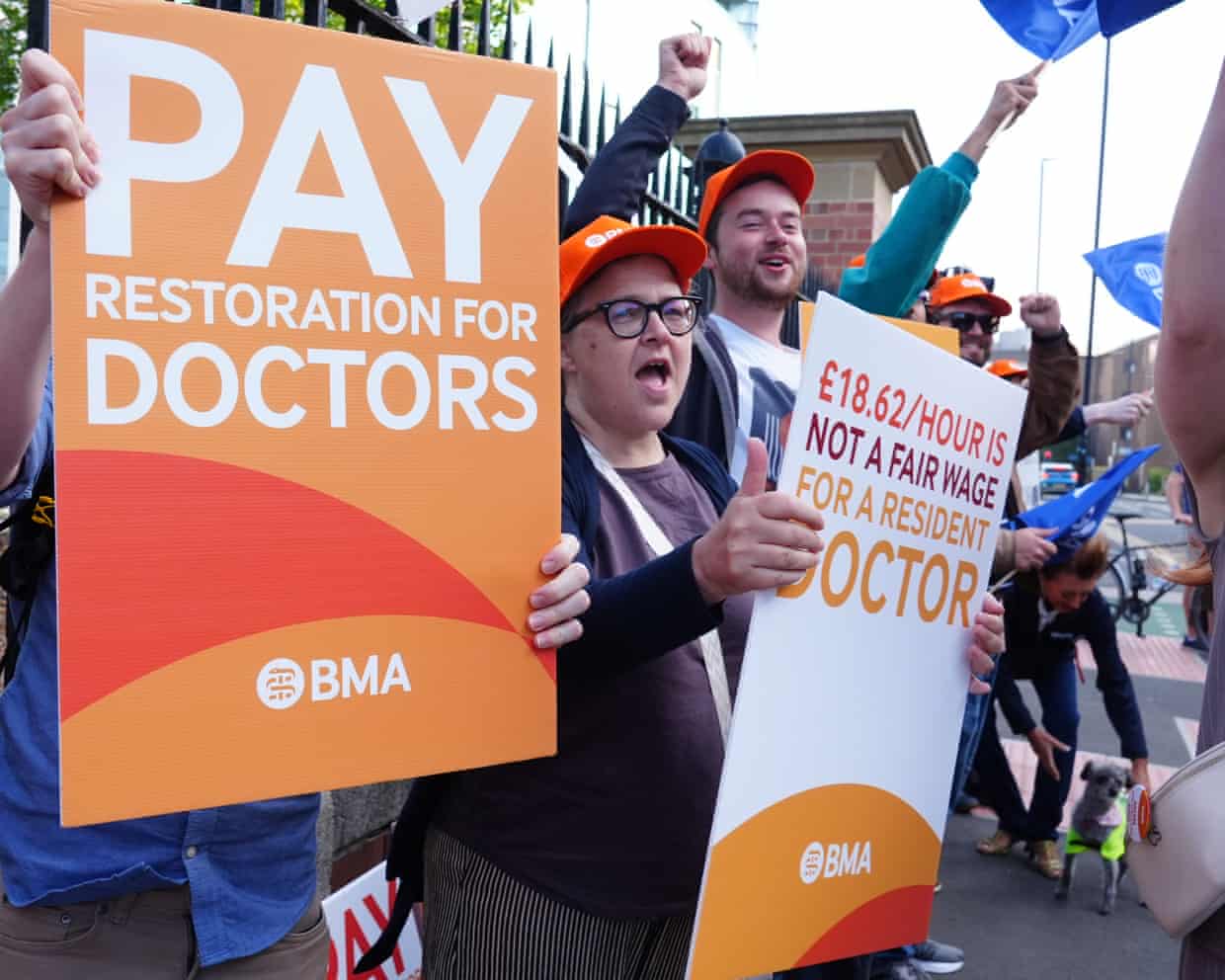Health
BMA Disputes NHS Claims on Resident Doctors’ Strike Participation

The British Medical Association (BMA) has contested NHS England’s assertion that less than a third of resident doctors participated in last week’s strike action across England. According to NHS figures, 93% of planned operations and procedures proceeded as scheduled, with the health service reportedly caring for approximately 10,000 more patients compared to the previous year’s strike.
Health Secretary Wes Streeting emphasized the importance of moving beyond what he described as a “cycle of disruption.” He stated, “A majority of resident doctors didn’t vote for strike action and data shows that less than a third of residents took part. I want to thank those resident doctors who went to work for their commitment to their patients.”
Despite these claims, the BMA argues that the data is unreliable. The organization pointed out that the complex work schedules of doctors and their use of annual leave make it “almost impossible to know” how many were actually on strike. An analysis indicated that participation in the five-day walkout had decreased by 7.5% compared to the previous round of industrial action.
The BMA has called for more concrete data from NHS England, highlighting the challenges in assessing participation during strikes. “NHS England’s claim that the majority of England’s 77,000 resident doctors chose to ‘join the NHS-wide effort to keep the services open’ requires a huge stretch of the imagination,” the association stated. The union noted that many doctors may not have been counted as striking due to their leave schedules and the timing of the strike overlapping with the weekend.
Resident doctors, previously referred to as junior doctors, are advocating for a 29% pay rise. Their ongoing dispute with the government has intensified, particularly as the government has refused to engage in pay negotiations. The BMA expressed that the strike could have been avoided if a credible offer had been presented by the government.
While some NHS trusts reported minimal disruption, with the West Hertfordshire Teaching Hospitals Trust managing to complete 98% of its planned activities, other trusts also performed well under the circumstances. The University College London Hospitals Trust and Northumbria Healthcare Foundation Trust both conducted 95% of their scheduled procedures.
Despite these successes, James Mackey, NHS chief executive, warned that thousands of patients still experienced care disruptions due to the strike. He described any future strikes as “unacceptable” and urged the resident doctors’ committee to return to negotiations.
The implications of the strike extend beyond immediate patient care. Saffron Cordery, deputy chief executive of NHS Providers, stressed the need for a resolution, stating, “This dispute can’t drag on. The union says resident doctors want this to be their last strike. Bringing disruptive strikes – where the only people being punished are patients – to an end must be a priority.”
As talks are set to resume, the focus remains on finding a solution that balances the needs of resident doctors with the operational demands of the NHS. The outcome of these discussions may significantly impact the future landscape of healthcare services in England.
-

 Technology4 months ago
Technology4 months agoDiscover the Top 10 Calorie Counting Apps of 2025
-

 Health2 months ago
Health2 months agoBella Hadid Shares Health Update After Treatment for Lyme Disease
-

 Health3 months ago
Health3 months agoErin Bates Shares Recovery Update Following Sepsis Complications
-

 Technology3 weeks ago
Technology3 weeks agoDiscover 2025’s Top GPUs for Exceptional 4K Gaming Performance
-

 Technology2 months ago
Technology2 months agoElectric Moto Influencer Surronster Arrested in Tijuana
-

 Technology4 months ago
Technology4 months agoDiscover How to Reverse Image Search Using ChatGPT Effortlessly
-

 Technology4 months ago
Technology4 months agoMeta Initiates $60B AI Data Center Expansion, Starting in Ohio
-

 Technology4 months ago
Technology4 months agoRecovering a Suspended TikTok Account: A Step-by-Step Guide
-

 Health4 months ago
Health4 months agoTested: Rab Firewall Mountain Jacket Survives Harsh Conditions
-

 Lifestyle4 months ago
Lifestyle4 months agoBelton Family Reunites After Daughter Survives Hill Country Floods
-

 Technology3 months ago
Technology3 months agoUncovering the Top Five Most Challenging Motorcycles to Ride
-

 Technology4 weeks ago
Technology4 weeks agoDiscover the Best Wireless Earbuds for Every Lifestyle





















